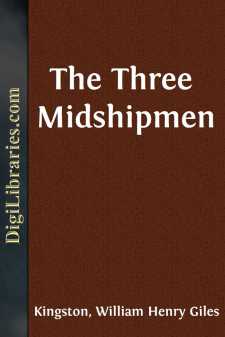Categories
- Antiques & Collectibles 13
- Architecture 36
- Art 48
- Bibles 22
- Biography & Autobiography 813
- Body, Mind & Spirit 142
- Business & Economics 28
- Children's Books 17
- Children's Fiction 14
- Computers 4
- Cooking 94
- Crafts & Hobbies 4
- Drama 346
- Education 46
- Family & Relationships 57
- Fiction 11829
- Games 19
- Gardening 17
- Health & Fitness 34
- History 1377
- House & Home 1
- Humor 147
- Juvenile Fiction 1873
- Juvenile Nonfiction 202
- Language Arts & Disciplines 88
- Law 16
- Literary Collections 686
- Literary Criticism 179
- Mathematics 13
- Medical 41
- Music 40
- Nature 179
- Non-Classifiable 1768
- Performing Arts 7
- Periodicals 1453
- Philosophy 64
- Photography 2
- Poetry 896
- Political Science 203
- Psychology 42
- Reference 154
- Religion 513
- Science 126
- Self-Help 84
- Social Science 81
- Sports & Recreation 34
- Study Aids 3
- Technology & Engineering 59
- Transportation 23
- Travel 463
- True Crime 29
The Log House by the Lake A Tale of Canada
Categories:
Description:
Excerpt
It was late in the afternoon when Mr Philip Ashton walked up to the door of his residence in Portman-square. His hand touched the knocker irresolutely. “It must be done,” he said to himself. “May strength be given to all of them to bear the blow!” His hand shook as he rapped. The hall door flew open, a servant in handsome livery stood ready to take his hat and gloves. As he entered the drawing-room his wife and daughters rose to welcome him, with affection beaming in their eyes, as did his three sons, who had just arrived at home from different directions.
“Dear papa, you are not well,” exclaimed Sophy, his eldest daughter, leading him to a seat.
“Philip, what is the matter?” asked his wife, leaning over him.
“Sit down, dears, and I will tell you,” he answered, pressing her hand. “A severe trial has come upon us, but—”
“Dear Leonard, nothing has happened to him, I pray?” gasped out Mrs Ashton. Leonard was a sailor son, the only one now absent.
“Thank Heaven he is well; I had a letter from him only to-day,” answered Mr Ashton. “Many mercies are granted us, and I trust, therefore, that you will all submit to be deprived, without murmuring, of the wealth we hitherto have thought our own. Dear ones, the law-suit has been decided against us!”
The young Ashtons were silent for some minutes, but presently recovered themselves.
“We can all work,” exclaimed the three sons, in a breath.
“Our happiness does not consist in this,” said Sophy, glancing round the room, “We will make the smallest cottage comfortable for you, mamma.”
“I am sure we can, and do all the work ourselves,” cried Fanny, her next sister.
“I can make a pudding, and churn, and could soon learn how to milk a cow,” said Agnes, the third daughter, laughing. “I have always wished to live in a cottage in the country.”
“I’ve arranged it,” said Fanny. “Agnes shall be cook, I will be waiting-maid, Sophy housekeeper, Philip bailiff, Harry gardener, and Charley—oh, let me consider—general farm-servant: won’t that be excellent?”
“But you place your mother and me on the shelf,” said Mr Ashton, his spirits reviving from seeing the way in which his children bore the announcement he had so dreaded making. “What are we to do?”
“O papa, of course you and mamma are to do nothing. We are all to work for you,” exclaimed Harry, a fine youth of fourteen, who looked as if there was indeed work in him.
“Of course,” added Charley. “How we ought to thank you, papa, for having us taught carpentering, and that we all have such a fancy for gardening. John says, too, that I know almost as much about pigs and cows and sheep as he does; and as for Phil, he knows more about everything than all of us put together.”
Philip—Mr Ashton’s eldest son—had not spoken after he had first expressed his feelings with his brothers. His thoughts were elsewhere. A bright airy castle he had lately raised, had just been hurled rudely to the ground, and he was stunned by the crash.
Mr Ashton retired to rest that night with a mind greatly relieved. He had not doubted the affection of his children, and he was assured that it would enable them to bear their reverse of fortune with cheerfulness. When he rose in the morning he prayed earnestly for strength to go through the work required of him, and that is never denied to those who seek it from Him who can alone afford it. In all the work he received able assistance from his son. Philip had not left a single debt unpaid at the University, by which, under his altered circumstances, he might ever afterwards have been hampered....












